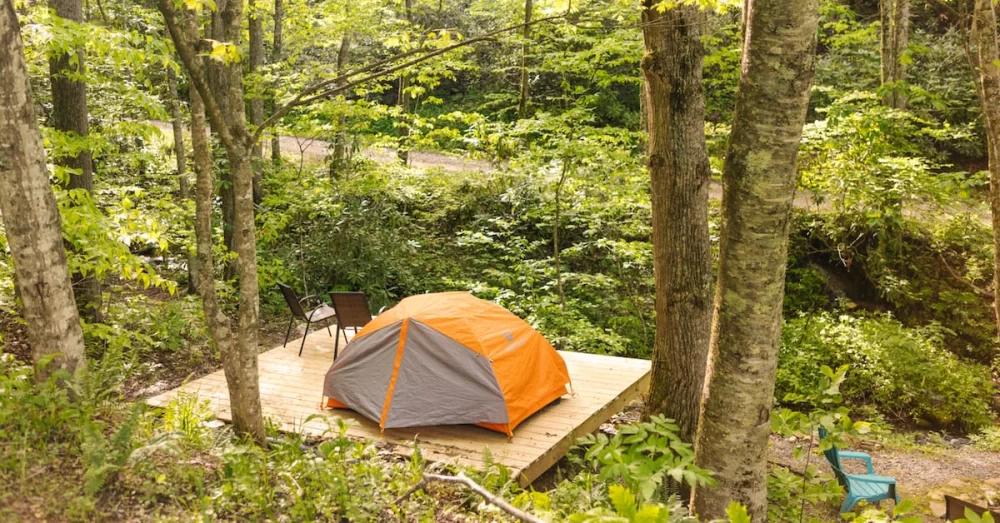Learn how to capture stunning photos while camping with our complete guide. Discover expert camping photography tips, ideal camera gear, and the best techniques for photographing nature and outdoor landscapes.

How to Capture Stunning Photos While Camping
- 1. Essential Photography Gear for Camping
- 2. Photography Techniques for Capturing Nature
- 3. Lighting Tips for Perfect Outdoor Photos
- 4. Composition Tips to Frame the Perfect Shot
- 5. Personal Stories: Real Camping Photography Experiences
- 6. Why Camping Photography Will Enhance Your Trip
1. Essential Photography Gear for Camping
When you’re heading out into the wilderness for a camping trip, having the right photography gear is crucial. You don’t need the most expensive equipment, but there are a few key pieces that will make your outdoor photography much easier. A DSLR or mirrorless camera with a zoom lens can help you capture wide landscapes and close-up wildlife shots. If you want something lighter, a compact camera or even a high-quality smartphone can do wonders.
Additionally, don’t forget your accessories: a sturdy tripod, extra batteries, memory cards, and a weatherproof camera bag to protect your gear from the elements. A lightweight drone can also provide stunning aerial shots of the campsite and surrounding landscapes.
2. Photography Techniques for Capturing Nature
Outdoor photography isn’t just about having the right equipment—it’s also about technique. When photographing nature, it’s important to be patient and observant. Whether you're capturing the sunrise over a mountain range or the quiet beauty of a forest stream, take your time to look for interesting perspectives and details. Consider focusing on textures, like the bark of a tree, the patterns in the clouds, or the delicate leaves in a river.
Another tip is to shoot during the “golden hour” shortly after sunrise or before sunset. The soft, warm light during these times can make your photos look magical. If you want to take great photos at night, consider using a long exposure to capture the stars or even the moonrise over the horizon.
3. Lighting Tips for Perfect Outdoor Photos
Lighting is one of the most important aspects of photography, especially in outdoor settings where natural light can change rapidly. Early mornings and evenings provide the softest and most flattering light, ideal for capturing stunning landscapes and portraits of your camping group.
If you find yourself shooting during midday when the light is harsh, use it to your advantage by focusing on shadow and contrast, or use a polarizing filter to reduce glare and enhance the colors in the sky and water. In dense forests, you may need to adjust your camera settings to compensate for lower light levels, and don’t hesitate to use your flashlight for added illumination during darker scenes.
4. Composition Tips to Frame the Perfect Shot
Composition is key when it comes to outdoor photography. The way you frame your shot can make a huge difference in the impact of your images. One technique to try is the rule of thirds, which involves placing your main subject off-center, creating a balanced and visually appealing photo.
Leading lines, such as a winding trail or a river, can help draw the viewer's eye into the frame. Always look for elements in the environment that create a sense of depth or scale. This could include rocks in the foreground that lead into a distant mountain or trees that form a natural frame around a sunset. Experiment with different angles and perspectives—sometimes the best shots come from unusual vantage points.
5. Personal Stories: Real Camping Photography Experiences
Last summer, I went on a week-long camping trip in the Rocky Mountains with friends. Armed with my DSLR and a drone, I spent each morning and evening capturing the breathtaking scenery. One of the most memorable moments was during sunrise on the second day, when the light hit the mountain peaks just right. I managed to capture a photo that perfectly reflected the stillness of the moment—a moment I now treasure as one of my favorite outdoor shots.
Another time, I was lucky enough to snap a photo of a deer grazing near our campsite. The natural light streaming through the trees made the shot magical, and it reminded me of how essential patience and observation are in outdoor photography.
6. Why Camping Photography Will Enhance Your Trip
Photography is not just about taking beautiful pictures—it’s about capturing memories. When you go camping, you're experiencing nature in its rawest form, and photography allows you to preserve those experiences. By documenting your adventures, you'll have images to reflect upon for years to come, reliving the beauty and serenity of your time in the great outdoors.
So, don’t hesitate to take your camera with you next time you head out on a camping trip. Whether you're photographing a majestic landscape or the quiet stillness of the forest, you’ll be creating memories that will last a lifetime. And who knows, you might just discover a hidden talent for outdoor photography!
Seven Eagles Resort & Camp
9734 IL-84, Savanna, IL 61074, USA
Visit Location PageLucky's Last Resort
22556 Ulmus Ave, Plymouth, IA 50464, USA
Visit Location Page